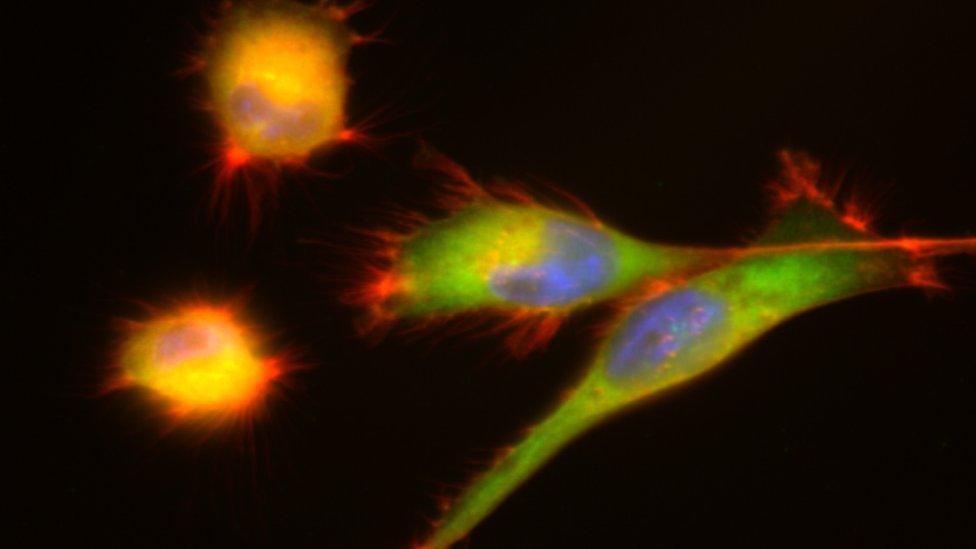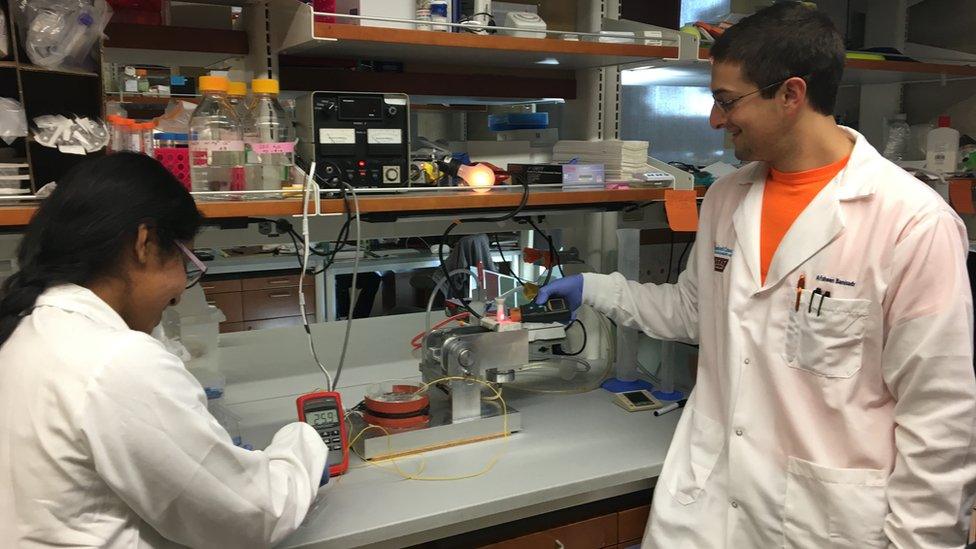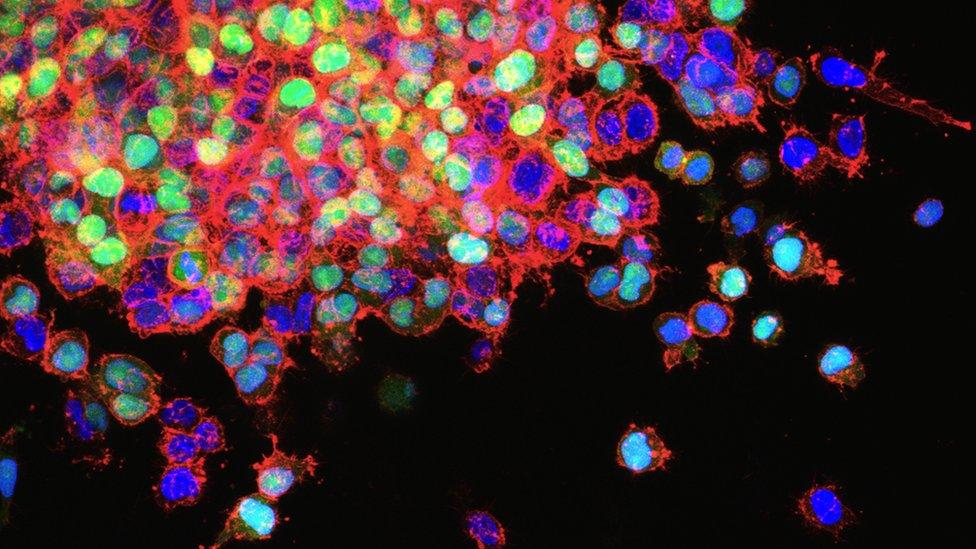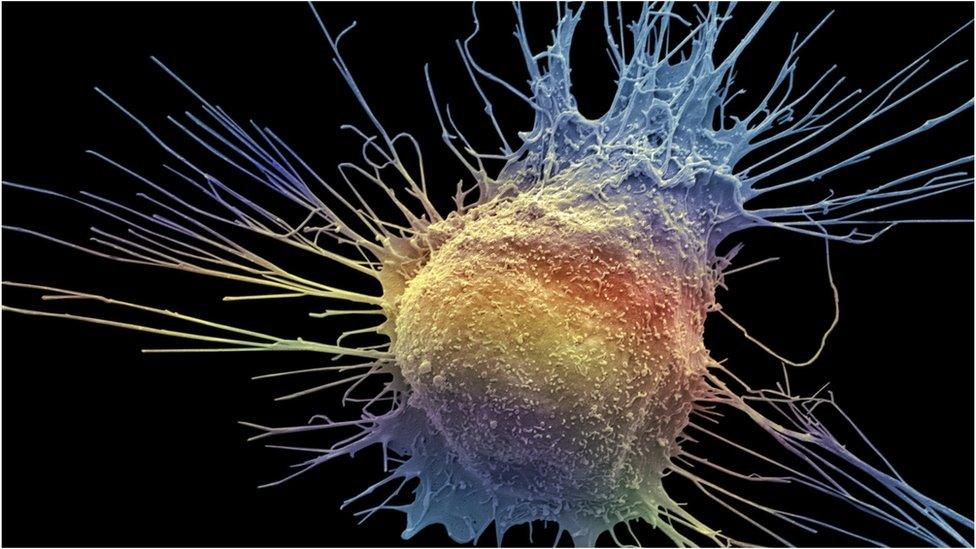Cell 'stickiness' could indicate cancer spread
- Published

The green cells pictured are less 'sticky' and are migrating cancer cells
Cell "stickiness" could indicate the likelihood that cancer will spread to other parts of the body.
University of California researchers found tumour cells that stuck less to surrounding cells are more likely to migrate and invade other tissue.
They hope it could one day help identify cancer patients who need aggressive treatment at an early stage.
But they warn the laboratory research is at a very early stage and many years from being studied in clinical trials.
Cancer cells spread by detaching and migrating away from the primary tumour to form a secondary, metastatic, site.
But only a small number of cancer cells from a tumour are capable of forming secondary tumours.
So far, attempts to find a marker that identifies these cells across tumour types have been unsuccessful.
This study, published in Biophysical Journal, external details how the research team built a custom spinning disc device that was able to measure the adhesion strength of breast and prostate cancer cells - and how much force was needed to detach them.

The researchers developed a device that could measure cancer cell stickiness
Dr Adam Engler who was one of the lead authors of the study said: "There is no common biological marker that says that a tumour is more likely to spread. However, our device shows that there may in fact be a physical marker that is predictive of the likelihood of spreading."
In the future, they say clinicians could use this device to examine tumour biopsies and estimate the likelihood of the cancer spreading.
This information they could use to assess whether patients might need more aggressive treatment at earlier stages of the disease.
But Dr Engler said: "Patients should realise that that the timing for these results to hit even the initial clinical trials is several years away."
Dr Justine Alford, senior science information officer at Cancer Research UK, said: "Cancers moving to new areas of the body is the main reason why people die from the disease, and is a process we don't fully understand.
"This study helps us to understand more about how cancer cells can spread in the lab and helps build a clearer picture of cancer development."
- Published25 November 2016

- Published31 October 2016

- Published9 September 2015
